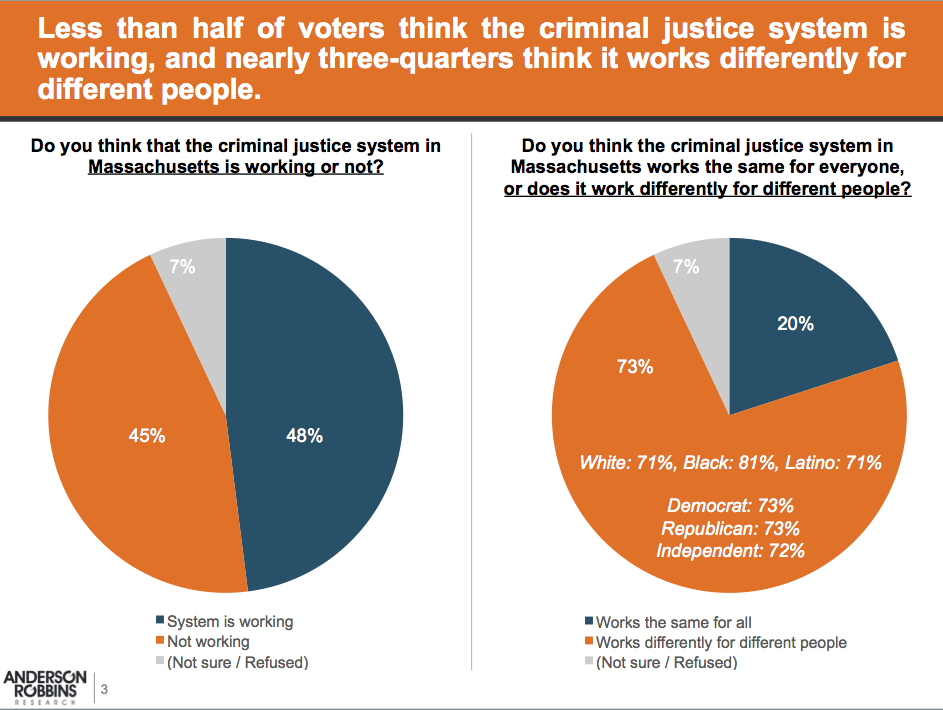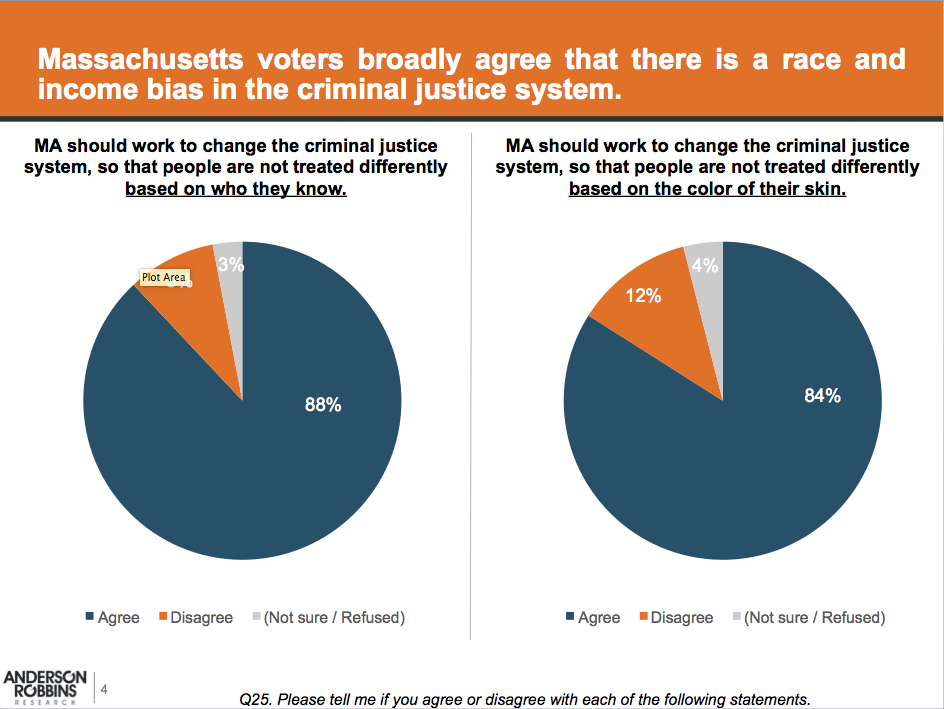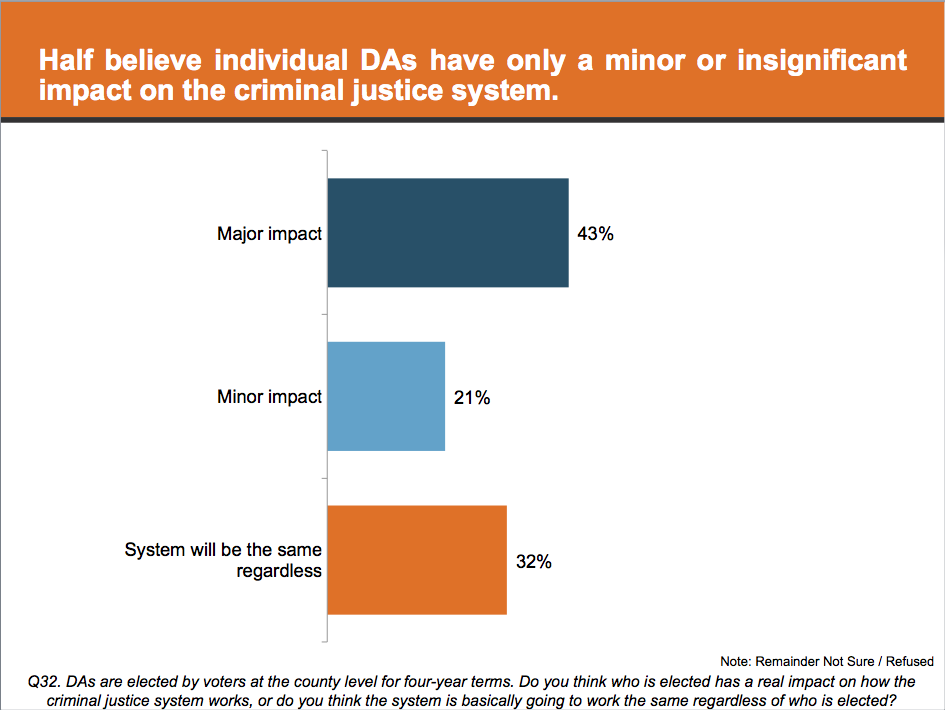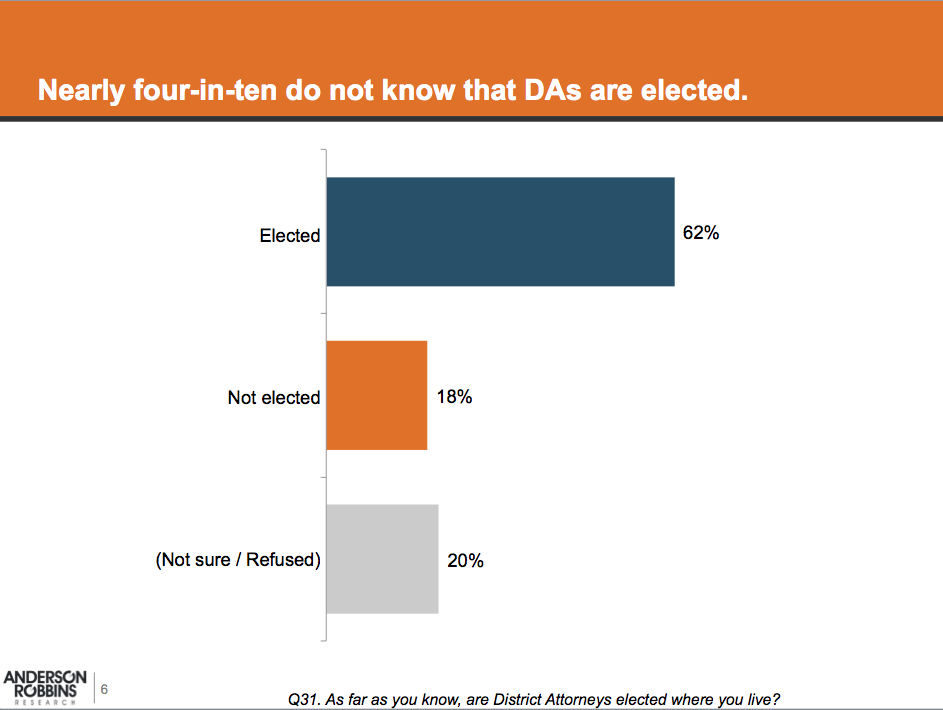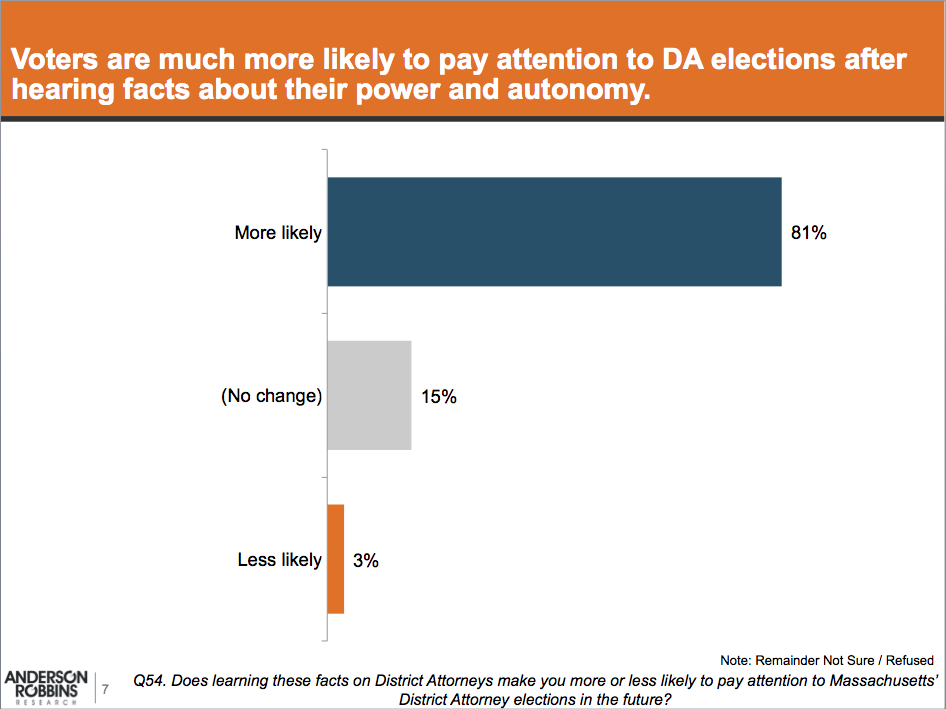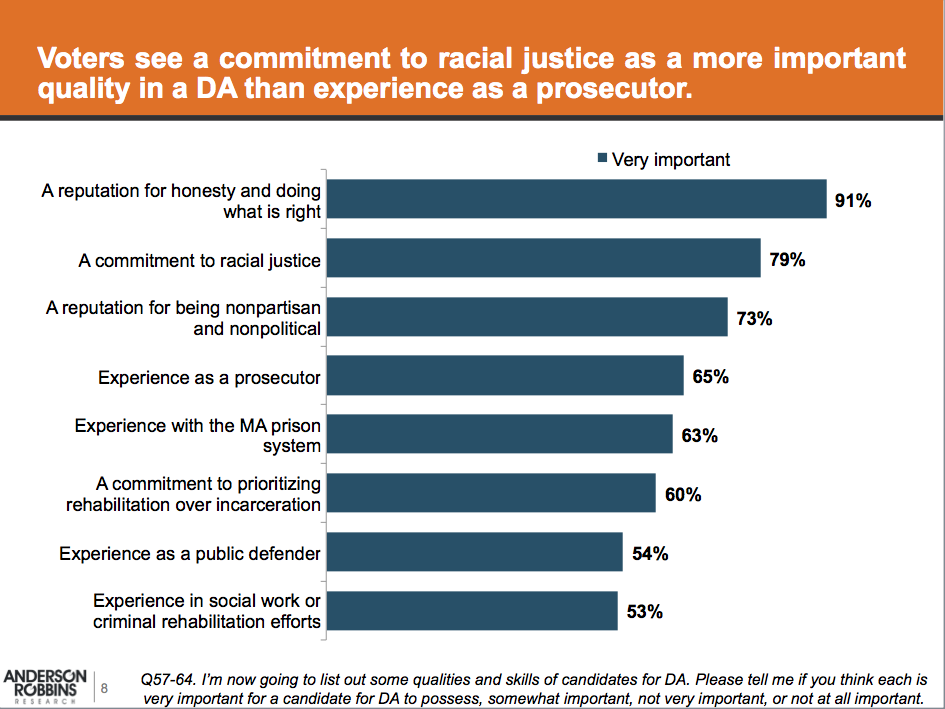
UPDATE (Dec. 2017): The ACLU of Massachusetts launched the "What a Difference a DA Makes" campaign to highlight the key role the state's district attorneys play in determining the effectiveness and fairness of the criminal justice system. Learn more about the impact of district attorneys and how to get involved by visiting DAdifference.org.
More than eight-in-ten voters think Massachusetts needs to reform its criminal justice system, according to a first-of-its-kind poll released today by the ACLU of Massachusetts. Eighty-eight percent (88%) of voters think Massachusetts should work to change the criminal justice system so that people are not treated differently based on who they know. Eighty-four percent (84%) of voters think Massachusetts should work to change the criminal justice system so that people are not treated differently based on their race.
View findings of survey prepared by Anderson Robbins Research
Fewer than half (48%) of Massachusetts voters think the state's criminal justice system is working, with huge majorities of all races and across ideological perspectives believing that the criminal justice system works differently for different people, according to the poll, the first-ever in Massachusetts about the public perception of District Attorneys and criminal justice.
"This poll shows clearly that Massachusetts voters feel the criminal justice system is biased and ripe for reform," said Carol Rose, Executive Director of ACLU of Massachusetts. "For far too long, the system has given preference to the connected and the wealthy, and Massachusetts voters say it's time for change. At the ACLU of Massachusetts, we remain committed to fighting for racial justice, ending over-incarceration and ensuring a fair justice system for everyone."
Voters' attitudes about the criminal justice system were affected when informed about the major impact District Attorneys have on the workings of the criminal justice system. Nearly eight-in-ten (79%) voters say a commitment to racial justice is an important quality for a candidate for District Attorney, ranking that commitment higher than the 65 percent who list prior experience as a prosecutor as a key quality for DA candidates.
The ACLU poll will inform a new voter education campaign set to launch this fall. The campaign, called "What a Difference a DA Makes," will be launched by the ACLU of Massachusetts and allied groups, and will seek to build voter awareness on the life-changing power wielded by District Attorneys, and how voters can hold District Attorneys accountable and encourage them to make fair and just decisions.
The data shows that Massachusetts voters currently have limited knowledge of the power and budgets of District Attorneys, and few realize that DAs are accountable only to voters, with little in the way of checks-and-balances in between elections. Half of the registered voters believe individual District Attorneys have only a minor or insignificant impact on the functioning of the criminal justice system—and almost four-in-ten (38%) did not know that District Attorneys are elected and accountable only to voters. After hearing facts about the everyday impact that District Attorneys can have on individual lives and in communities, 81 percent of voters say they are more likely to pay attention to their local District Attorney race in 2018.
"This poll shows there is a clear opportunity to increase voter engagement in District Attorney races," said Rahsaan Hall, director of the Racial Justice Program at the ACLU of Massachusetts. "Voters want more racial and social justice in the criminal justice system—and District Attorneys play a dominant role in making this a reality."
The survey, conducted by Anderson Robbins Research, interviewed by telephone 618 Massachusetts registered voters. It has a margin of error of +/- 4. The statewide telephone survey was preceded and informed by two focus groups held in Waltham, MA.
Survey prepared by Anderson Robbins Research
Findings
Less than half of voters think the criminal justice system is working, and nearly three-quarters think it works differently for different people.
Massachusetts voters broadly agree that there is a race and income bias in the criminal justice system.
Half believe individual DAs have only a minor or insignificant impact on the criminal justice system.
Nearly four-in-ten do not know that DAs are elected.
Voters are much more likely to pay attention to DA elections after hearing facts about their power and autonomy.
Voters see a commitment to racial justice as a more important quality in a DA than experience as a prosecutor.
About the survey
Mode
Telephone survey conducted by trained professional interviewers from a central, monitored location
Sample
618 Massachusetts registered voters
Interviewing Dates
May 30 - June 2, 2017
Weights
Slight weights were applied to ensure the sample accurately reflects the demographic profile of Massachusetts voters statewide
Margin of Error
±4 at the 95% confidence level for the entire sample; the margin of error for subgroups is higher
Note
Some data may not add to 100% due to rounding
